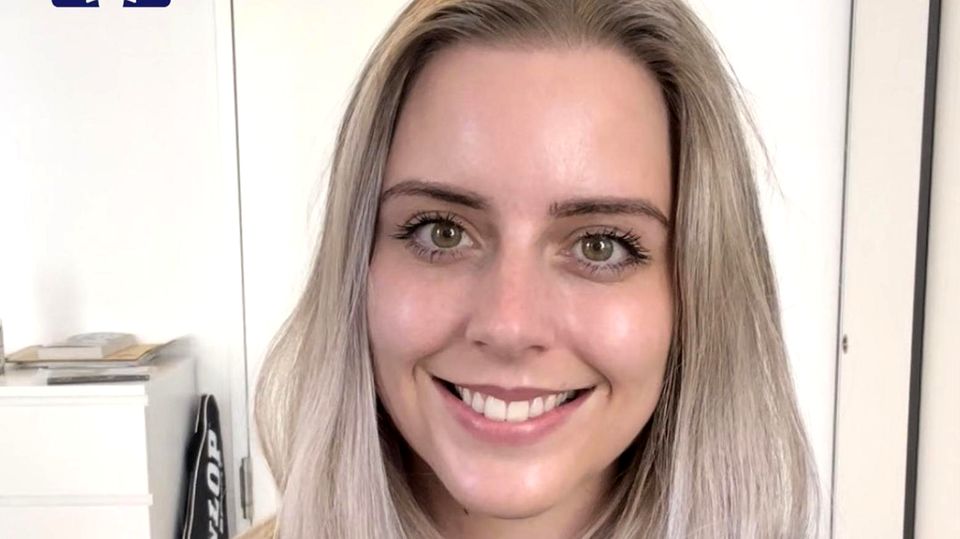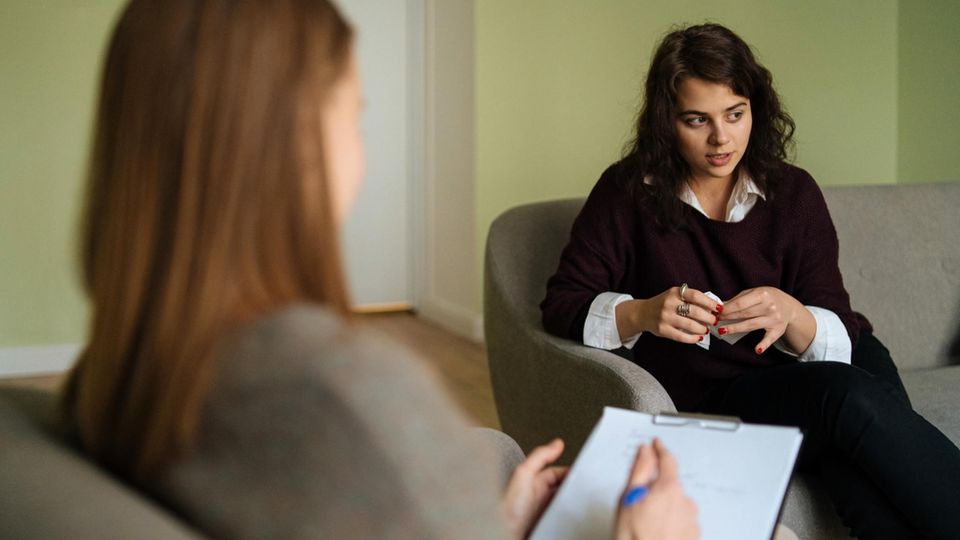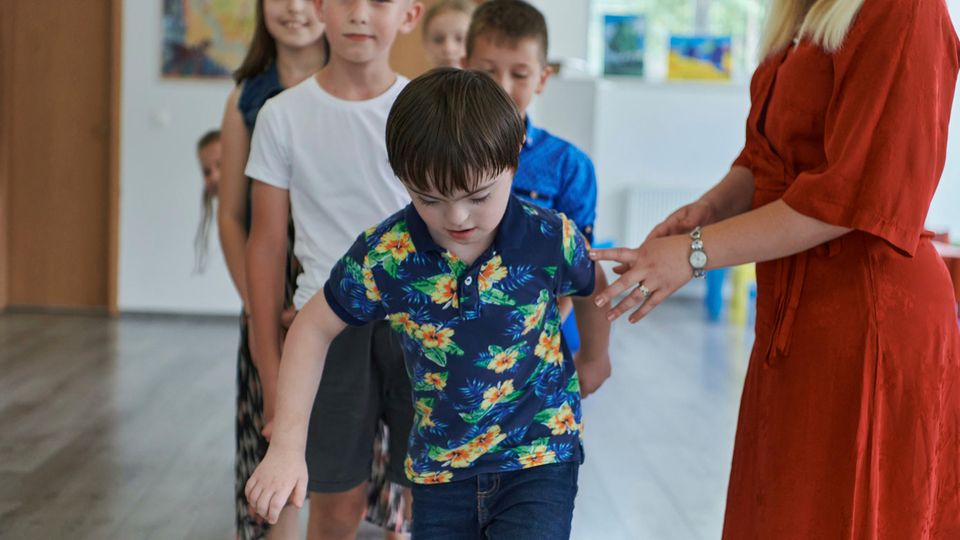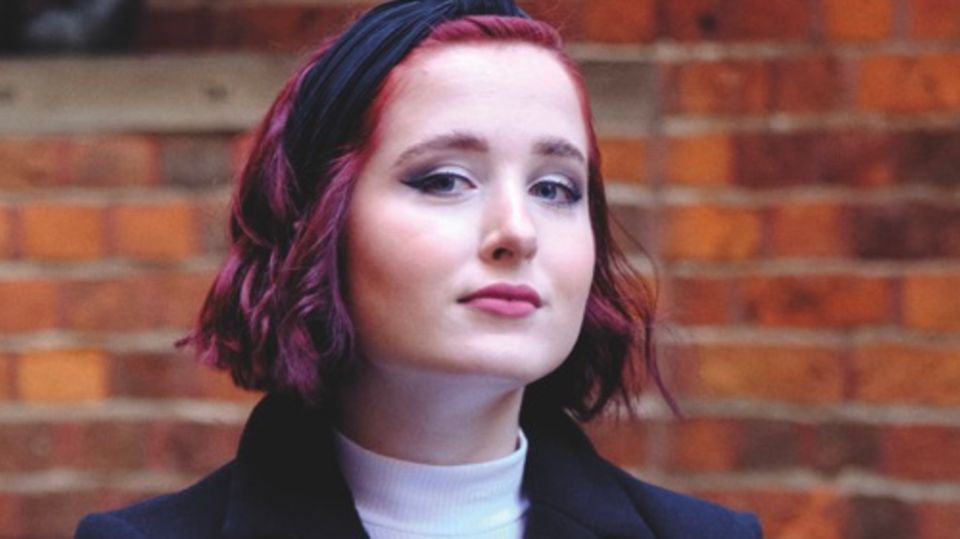Always keep an eye on the possibility of being overwhelmed: Parenting expert and author Susanne Mierau is particularly challenged by her autistic son. In the interview she explains what this means for everyday family life.
Six-year-old Arian, who is autistic, has been missing in Lower Saxony since Monday last week. What thoughts do you have? Mother of a child who is also on the autism spectrum?
The fact that a child is missing affects me. It doesn’t matter whether it is a child with autism or one without an impairment. I am particularly touched by the fact that the boy is non-verbal and is therefore even more dependent on help. As a mother of an eleven-year-old son on the autism spectrum, I know how he behaves in emergency situations, how much support he needs and how I can help him regulate his anxiety. Imagining him alone like Arian is terrible.
The missing boy was searched for with balloons and children’s songs, even with laser shows. Were you able to understand that?
Yes, but children on the autism spectrum react to very different things. What attracts or scares them is always individual. Loud noises are a big problem for our son: the children’s songs wouldn’t have lured him out of hiding.
When did you find out your son was autistic?
Like many parents, it was a long road. We have already observed deviations in development in toddlerhood. Many individual diagnoses were made, all of which fit into the autism picture, but a comprehensive overall view was missing for a long time. We were diagnosed with autism two years ago.
Did the diagnosis make it easier for you?
This means we are entitled to help, for example school support, there is compensation for disadvantages at school and individual help, and there is also more understanding outside with such a diagnosis. And I was able to obtain targeted information. I don’t think it’s possible to feel what living on the autism spectrum feels like, but there are books by people on the spectrum that describe autism and explain what is perceived, how, what is needed. These explanations are very helpful for me as a parent – alongside my child’s descriptions.
As a family we have to be very flexible.
What does living with an autistic child mean for your everyday life?
We have three children and, like most families with several children, our everyday life is structured. Our son on the autism spectrum, more than his siblings, needs fixed routines from which he cannot deviate. At the same time, we parents and his siblings have to be very flexible because there is always the risk that something will overwhelm him and then we have to change our plans. My husband has rented an office space near the school so that he can pick up our son immediately if he is overwhelmed. This happens regularly.
What can overwhelm mean?
Some time ago we were at the market among a lot of people, it was loud. This is a big challenge for my son, even if we use strategies like headphones. But there are also children on the autism spectrum who find such events less challenging. At the market, a stranger suddenly touched his shoulders. He can’t take that well.
What happens if you touch your son?
It is even more unpleasant for him than for many other children to simply be touched by a stranger. At the market I calmed him down, then the person who touched him said: Oh, those helicopter parents… So I had to explain that he is autistic and ask to respect his body boundaries. And they should always be respected, for all children, I think.
Other people don’t know how tiring it is to shop in a supermarket with loud music.
There must be a lot of pressure on you to make the environment as stimulating as possible.
No, it’s not that bad. My son can take part in everyday life very well. I just have to keep an eye on what is too much, what is too strenuous. I don’t ask myself the question: How can I retire with him? I rather ask myself: How can I deal with this, how can we design situations and experiences so that he can participate well? And I think it would be good for our entire society to reduce stimuli, to be more friendly with one another, to respect one another. In addition to all the challenges, we also have a very nice everyday life together, and he is simply a wonderful child. We parents never think: Oh, if only he were different.

“Why shouldn’t people with disabilities be included?”: Michi Benthaus wants to go into space in a wheelchair
08:35 minutes
You are not only a qualified teacher, but also the best-selling author of several parenting guides. Does the expertise help you in everyday life or are we all equally unprofessional in front of our own children?
(laughs) Being an educator helps me because I know where and how I can best get information about a topic like autism. Some therapeutic approaches are as questionable as the advice on the Internet, where parents may be given the wrong advice. And as an educator, I have already learned methods to endure strong feelings and master stressful situations. Of course, sometimes I’m exhausted and cry out of despair. I am not a parent with supernatural powers just because I studied education.
What are the special characteristics of children who are on the autism spectrum?
Again, nothing can be generalized here. There are many stimuli that are perceived more strongly or are more challenging to regulate. Some people on the autism spectrum respond with stimming, a behavior that attempts to protect against sensory overload such as swinging their arms, rocking, hopping, or others. stimming toys such as fidget balls and squeeze balls can help – these are also popular with neurotypical people. Many people try to protect themselves with headphones, caps and sunglasses. If the situation is too sensory or emotionally overwhelming, a meltdown or shutdown can occur: Some children scream, cry, hurt themselves, or withdraw completely into themselves. It makes sense to avoid these reactions because they are very stressful. Excessive demands should therefore be recognized early on by relevant people such as parents, school support or individual support.
In what ways has your autistic child changed you as a person and as a mother?
I had to think about myself again and ask myself: Okay, how do I manage to stay calm even in emotionally very challenging situations? To accompany feelings and remain stable within myself? And it made me more aware of how our society treats people with disabilities. With people who need more care. I have become more critical of society because I feel like I have to fight so often. I often have to explain to all kinds of institutions what autism means and say, for example: No, you can’t toughen my child, scientific research proves that. This educational work is more important than with children, for whom this does not have to be the case. There is a lot of misinformation or stereotypes that one encounters in everyday life.
You have to take a stand, if only to protect the child.
Yes.
What kind of support do parents of autistic children need?
I wish we treated each other more respectfully. That we neither judge nor judge the children nor the parents. If I’m out and about and my child reacts anxiously or screams because everything is too much, then negative comments don’t help. We need to look at each other with understanding: I don’t want to feel the pressure of having to make strangers feel comfortable. In such moments I need my strength for myself and my child so that I can help him. It relies on me staying relaxed. But relief and support are also important so that parents can provide this accompaniment, and loving other companions such as individual help. Counseling services for parents are very important. Overall, the topic of inclusion still has a lot of room for improvement in institutions, but also in our society.




